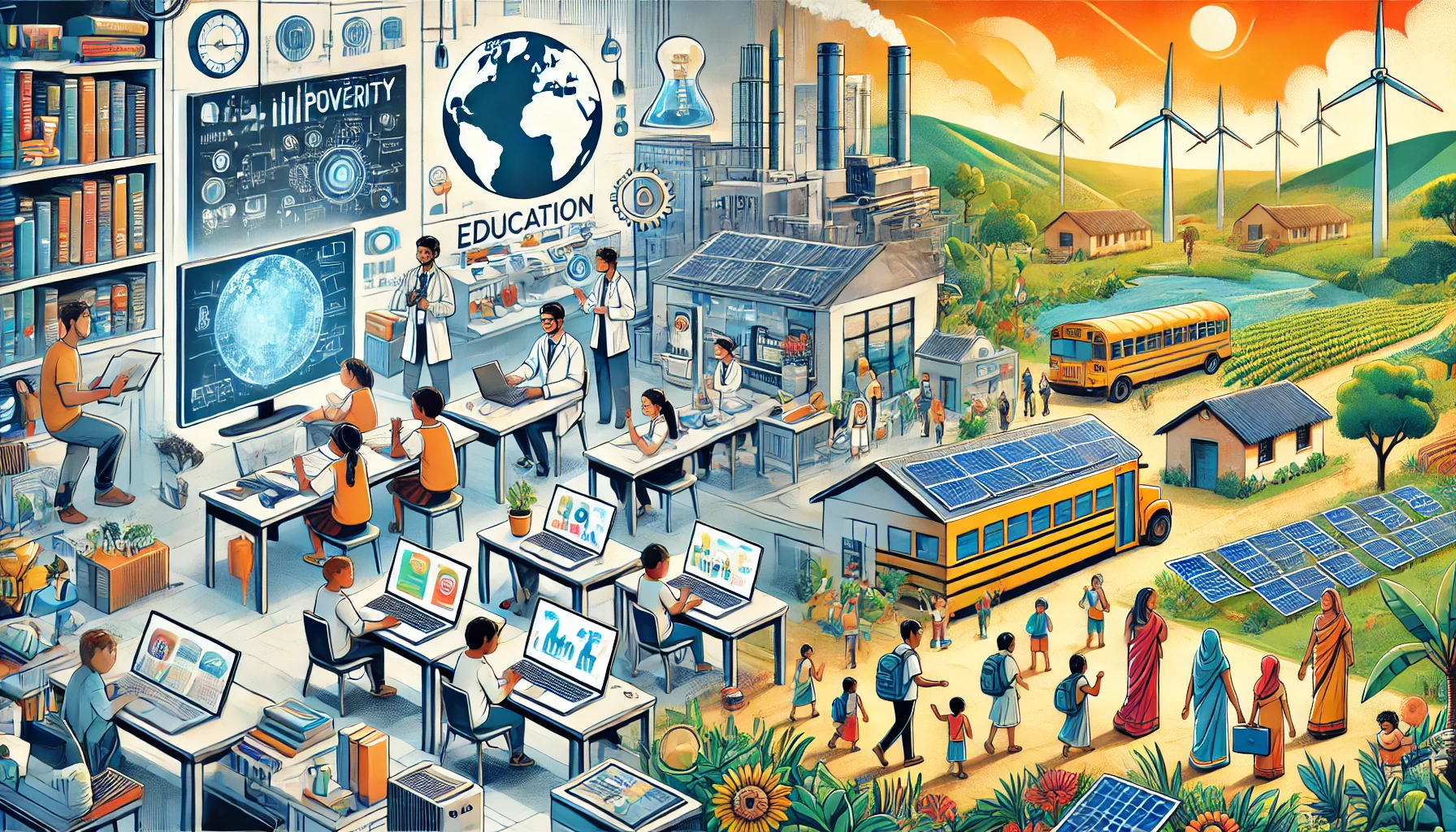Education and innovation are transformative forces that can break the cycle of poverty and unlock the potential of individuals and communities. When combined, they provide the tools and opportunities necessary for sustainable development and economic growth. Below are the ways education and innovation act as pivotal elements in poverty eradication:
1. Empowering Individuals Through Knowledge
Education equips individuals with critical skills and knowledge, increasing their ability to access better job opportunities. According to UNESCO, “each additional year of schooling raises a person’s income by about 10%” (UNESCO, 2023).
2. Fostering Entrepreneurship Through Innovation
Innovation inspires entrepreneurship by encouraging creative problem-solving and the development of new technologies. Startups in sectors such as renewable energy and agriculture create jobs and enhance community resilience.
3. Bridging the Digital Divide
Access to digital tools and the internet allows disadvantaged communities to participate in the global economy. Educational programs focusing on digital literacy help individuals secure remote jobs and improve their standard of living.
4. Advancing Healthcare and Well-being
Innovations in healthcare, such as telemedicine and affordable diagnostic tools, ensure access to quality medical care for underserved populations. Healthier individuals are more capable of contributing to their families and economies.
5. Encouraging Lifelong Learning
Continuous education through online platforms and community workshops ensures individuals adapt to changing market demands. This approach fosters resilience in the face of economic disruptions.
6. Creating Sustainable Solutions
Research and innovation lead to the development of sustainable practices in agriculture, energy, and manufacturing. These solutions not only boost productivity but also protect natural resources for future generations.
Education and innovation together create a pathway out of poverty, offering hope for a brighter future. By prioritizing investments in these areas, societies can empower individuals, reduce inequalities, and achieve sustainable economic growth.
[References: UNESCO. (2023). Education for Sustainable Development; World Economic Forum. (2024). Innovation as a Catalyst for Poverty Reduction.]


